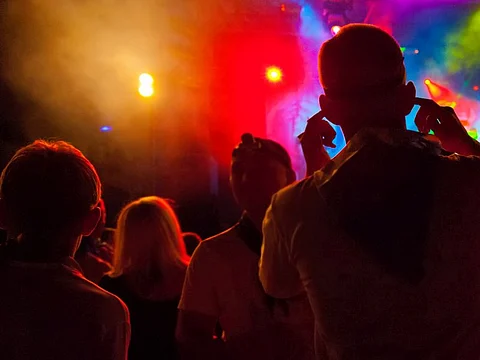Ecstasy is a synthetic drug with a reputation: Once popular at nightclubs and all-night “raves,” it now has a much broader use. As with other recreational drugs, it comes with serious health concerns.
Learn about ecstasy, what it is, what it’s used for, what effects it has, its synonyms, precautions, interactions, and about ecstasy abuse.
What is ecstasy?
According to the U.S. National Institute on Drug Abuse (NIDA), ecstasy, or MDMA (3,4-methylendedioxy-methamphetamine), is a synthetic drug that alters mood and awareness of your surroundings and conditions. Chemically, it is similar to both stimulants and hallucinogens.
Ecstasy goes by many names, according to the U.S. Drug Enforcement Administration. The most common synonym for MDMA is Molly, but several other street names include Adam, Beans, Clarity, Disco Biscuit, E, Eve, Go, Hug Drug, Lover’s Speed, Peace, STP, X and XTC.
According to the DEA, ecstasy is distributed and sold mainly in tablet form. The colorful tablets often have logos that create brand names for users to associate with and seek out. They look like candy and are often hidden among colorful candies. Ecstasy is also sometimes distributed in powder, capsules or liquid form. Most of the ecstasy seized in the United States is sourced from Western Europe.
So, what does ecstasy do?
The ecstasy drug produces feelings of pleasure, emotional warmth and increased energy. It also distorts perception of time and sensory details.
What drugs are in ecstasy?
Ecstasy is a synthetic drug. Many pills sold as ecstasy have other substances mixed in with them, and some can be quite dangerous. Some of substances often found in ecstasy are methamphetamine, ketamine, cocaine, cathinones (bath salts), and caffeine.
How long does ecstasy stay in your system?
While MDMA's effects last about 3 to 6 hours, many users take a second dose as the effects of the first begin to fade. With moderate use, the following negative symptoms may be experienced for up to a week:
- Irritability, impulsiveness and aggression
- Depression, anxiety
- Sleep problems
- Memory and attention problems
- Decreased appetite
- Decreased interest in and pleasure from sex
What is ecstasy used for?
Ecstasy is used for the purpose of getting high, according to Nemours Kids Health. It is popular among young people who go to clubs, bars or rave parties. It gives the user a rush of good feelings (a high) and makes feelings much more intense, whether they're good or bad. Users say it keeps them energized and able to keep going for a long time.
Ecstasy side effects
Some of the negative ecstasy effects include:
- Increased heart rate
- Dry mouth
- Clenched teeth
- Blurred vision
- Chills or sweating
- Nausea
- Anxiety, confusion or paranoia
Ecstasy precautions
Because ecstasy changes the ability of the body to regulate temperature, it is possible for the body to overheat during dancing or other physical activities. This can lead to muscle breakdown, and kidney, liver or heart damage. Ultimately, this can cause death. Ecstasy can also cause seizures, brain swelling and brain damage.
Ecstasy interactions
Using ecstasy in conjunction with other substances such as marijuana, LSD or alcohol can put the user at even higher risk of harmful health effects.
Combining ecstasy with other drugs, whether illegal or prescription, can lead to a dangerous interaction, according to the Centre for Addiction and Mental Health of Canada (CAMH). Several prescription medications are known to interact with ecstasy, including monoamine oxidase inhibitors (MAOIs), a type of antidepressant, and ritonavir, which is used to treat HIV.
Ecstasy abuse
While research has not indicated that ecstasy is addictive, according to CAMH, it certainly can take on an exaggerated importance in lives. People can build up a tolerance to the drug and may find themselves taking more to get the desired effect. Problems also arise when they continue taking the drug even though there are negative effects to their health.
According to NIDA, some people do report signs of addiction, such as the following withdrawal symptoms:
- Fatigue
- Loss of appetite
- Depression
- Trouble concentrating
While ecstasy may not be addictive, it has the potential for life-altering results. In American Family Physician, family medicine specialist Dr. Ann Klega, from Winter Park, Fla., and Dr. Jennifer Tickal Keehbauch, chief medical officer of Winter Park Memorial Hospital, offered a warning.
"MDMA is a stimulant and psychedelic with a chemical structure similar to serotonin," they wrote. "Adverse effects include serotonin syndrome, hyponatremia, long-term memory impairment, and mood disorders."
Resources
U.S. National Institute on Drug Abuse: MDMA (Ecstasy/Molly) Drug Facts
Nemours Kids Health: What is MDMA (Ecstasy)?
U.S. Department of Justice/Drug Enforcement Agency: Ecstasy/MDMA Drug Fact Sheet
The Centre for Addiction and Mental Health (Canada): Ecstasy
American Family Physician: Stimulant and Designer Drug Use: Primary Care Management


